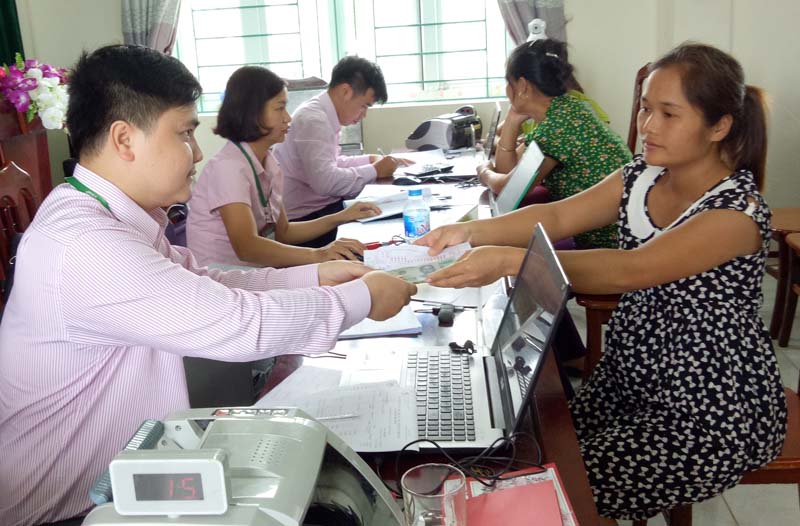



A credit official of the VBSP’s branch in Cao Phong
district is carrying out transactions in Tay Phong commune.
Vu Dinh
Hoai, Director of the VBSP’s branch in Hoa Binh province, said the line between
poor, near-poor households and those that have just escaped from poverty is so
small. Therefore, households that have just escaped from poverty have faced a
range of difficulties and may fall back into poverty if they receive no
attention and support from the State.
Preferential
credit policies towards these households would create momentum for them to run
away from poverty sustainably, he said.
According
to the Decision, subjects to the loans are households that used to be poor and
near-poor, and have been moved from the list of poor and near-poor households for
a maximum of three years.
Loans are
decided by the VBSP and the households and do not exceed 50 million VND each. The
annual interest rate stands at 8.25 percent.
Loan
terms are also consented by the bank and the households based on production and
business periods and the customers’ ability to refund. Each term does not last
for more than five years.
Since the
beginning of this year, the VBSP’s provincial branch has been asked to add 244.8
billion VND in loans to ten credit programmes to meet demands for production
and business capital of poor and near-poor households, and other social policy
beneficiaries.
Of the
sum, the programme exclusively designed for households that have run away from
poverty got 43 billion VND. As of the end of September, up to 1,408 households
had received loans worth nearly 51.9 billion VND, raising the total debit
balance to 178.2 billion VND with 5,284 households.
As a
result, more than 10,000 households in the province have escaped from poverty
over the past three years.
Given increasing
demand and limited capital, the bank has taken the initiative in disbursement
to help the households access credits to serve production and business activities./.